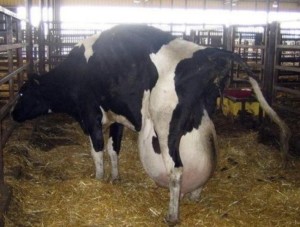Amy Allen
n October 2019, the New York City Council voted to ban force-fed poultry products, like the culinary delicacy, foie gras, French for “fatty liver.” The ban begins in 2022, which gives establishments and the government a three years preparation period. The fines range between $500 and $2,000, depending on the severity of the violation. The ban does not allow any restaurant or food service establishment to “stor[e], maintain, sell, or offer to sell” any foie gras product. Generally, male Moulard ducks, a hybrid between Muscovy and Pekin, are used for foie gras in the United States. This new legislation brought fierce debate between animal rights groups and chefs who have also partnered with foie gras producers.
The legislation was initially proposed by animal rights groups for the cruel and inhumane practices of force-fed poultry generally used called gavage. This practice involves force feeding live poultry a corn-based mixture, up to four pounds a day, that rapidly expands the poultry’s liver, sometimes so severely that the liver distends into the abdomen. The poultry’s liver can expand nearly 10 times its normal size. Often, the poultry is unable to walk from the distention and will pluck out its own feathers or attack other poultry due to the increased stress put onto its body. In France, gavage is required if a pâté is called foie gras.
In France, a prominent group of animal activists, L214, tried to sue foie gras producers for animal welfare violations in 2013. The French activist released graphic videos of the conditions the animals are placed under and filed the first ever foie gras lawsuit. Even though the producer was cleared of all charges, several prominent French chefs vowed to stop using foie gras as part of their menu.
However, other famous chefs continued to support the use of foie gras, such as Anthony Bourdain who famously commented that people were showing the worst aspects of the problem out of context to scare people and that the cultural history was the important aspect of the luxury item. Another prominent New York City restaurant owner, Ken Oringer, argued that city council members were fighting the wrong battle and factory farmed chickens were far worse than foie gras raise poultry. Oringer further agreed with Bourdain that animal rights activists were showing graphic videos to spark outrange that misrepresented the treatment of the animals. In the end, the city council found that force feeding animals was inhumane and a practice that had to be stopped in New York City.
Several animal rights activist groups have supported the bill due to the cruelty the practice inflicts on the poultry. The groups point to the fact that foie gras is a purely luxury item for cuisine, but it puts poultry through intense and immense stress. A few days after New York City created the ban, Voters For Animal Rights filed law suit against D’Artagnan, Inc. and D’Artagnan, LLC, foie gras producers based in Union, New Jersey. The suit does not seek monetary damages, but injunctive relief against “deceptive marketing and advertising practices” that suggests their foie gras product do not harm animals.
Hudson Valley Foie Gras, located about 100 miles north of New York City in Sullivan County, one of the largest force-fed poultry producers with over 400 employees, and its manager, Marcus Henley, continually defends the practice and say that the facility properly cares for the poultry. Hudson Valley Foie Gras is one of two businesses in Sullivan County that provide foie gras for most of the United States. Both Hudson Valley Foie Gras and La Belle, the other Sullivan County Foie Gras producer, sell nearly $38 million in foie gras annually and send around a third of their production to New York City. Hudson Valley Foie Gras has said that it will file a lawsuit against the city challenging the ban as unconstitutional. The ban will place a financial burden on the poorest county in New York state where most of the workers are Spanish-speaking immigrants, many of whom rely on the free housing provided by the farm.
Filed under: animal law, animal welfare, diet, Uncategorized | Tagged: animal law, animal welfare, foie gras ban | Leave a comment »





 I say it may be worse because dairy cows live their entire lives facing a
I say it may be worse because dairy cows live their entire lives facing a 

















 Kathleen Stachowski
Kathleen Stachowski









